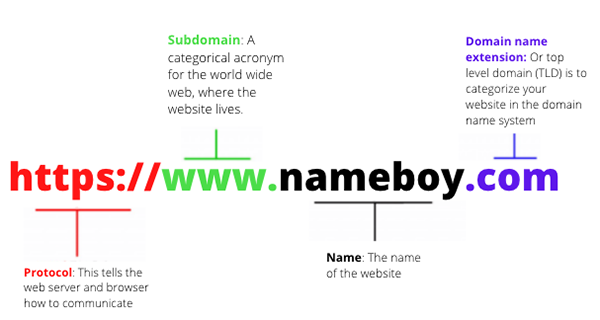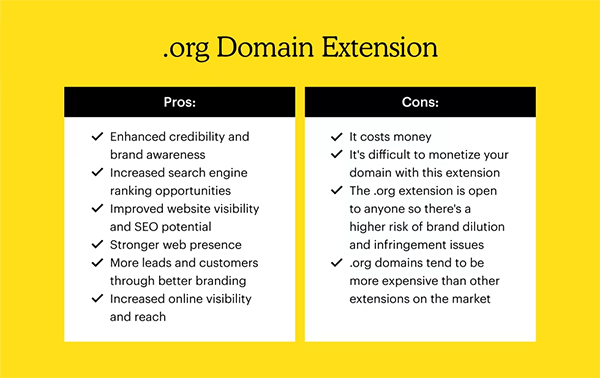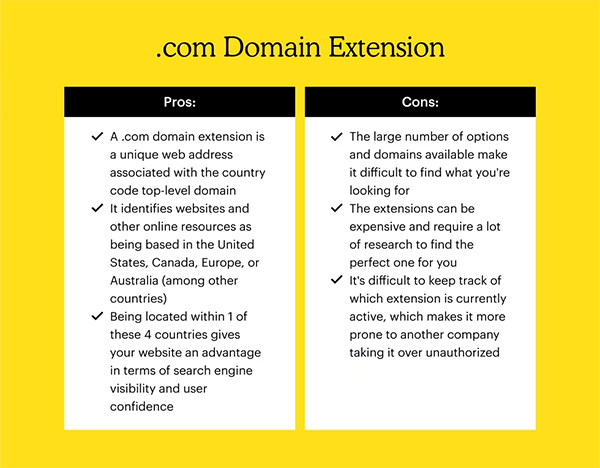From .com to .org: Understanding Different Domain Extensions

Whether you own a business, a blog, or just want your voice to be heard by leveraging a little slice of the internet. A proper domain extension is all you need to unlock your greatest potential.
A domain extension is something that an average user doesn’t think about that often, but it is definitely going on in the back of their mind, what is that .com and .org is all about?
And, just like we have previously discussed how your website grows with backlinks, this read will be diving into the deep significance of domain extensions.
Let’s start!
What Are Domain Extensions?

A domain extension is the last part of the domain name, which is usually the character following right after the period. For instance, at Allinsider.net, the .net part would be referred to as the domain extension. A domain is your digital address online, which works like a zip code giving visitors a little more information about you.
Do You Know?
There are approximately 351.5 million domain registrations by the second quarter of 2022, and this number is to keep going at a rapid pace.
Domain Extensions And Registration
So, the first step for unlocking your full potential in a digital space an opting for the perfect domain that matches your website’s vibe.
There are a range of domain registrars in the market that offer some affordable domain registration while allowing you to check the visibility of your desired domain. So, make sure to pick a domain that can help push your ranking on the search engines. Also, remember that each domain can only be used once, so try picking the one with a clear slate without any controversial background.
Common Domain Extensions
Domain extensions names typically categorize the websites by the information they provide, here are some of the most common examples:
- Generic Top-Level Domains (gTLD): This is probably one of the most recognizable domain names to the average user, as it contains the most classic .com and .net domains. These domain names are generic and are often used to capture the global market.
Do You Know?
According to Verisign, the .com and .net domains had a combined total of 174.7 million registrations at the end of the first quarter of 2022.
- Sponsored Top-Level Domains (sTLD): Domain extensions that are used by specific organizations and businesses are usually categorized within the sponsored extension. It is not used by the general public such as .gov and .mil.
- Country code top-level domains (ccTLD): As the name suggests, ccTLD are country-specific extensions, such as .us for the United States and .uk forthe United Kingdom.
- Special use domain extensions: Domains that are used for specific technical uses come under the Special use domain extensions category. This includes the use of .local and .test, which are often used to avoid misuse and confusion.
Differences Between .com And .org
If you have ever thought of making a website, the most commonly used extensions you have heard of would be the .com and .org. But do you know that there’s more difference to them than just their spelling?
Well, the .org domain is a more professionally looking domain that is often used by some non-profit organizations to build brand awareness. Additionally, using this domain also makes it easier for the people, who are interested in donating to your organization. Here are some of the pros and cons of using a .org domain extension.

On the other hand, a .com domain stands for the word “commercial”, which is the most common serving domain that covers over half of the internet. It is a common domain name, which is used by the business with a global presence, such as Amazon.com. So, now take a look at some of the pros and cons of using a .com domain.

Domain Extensions And SEO (Search Engine Optimization)
Your domain name can have a significant impact on your search engine rankings, as it typically categorizes the content of your website to match the search query. For instance, a country-specific domain will usually rank higher on the search engine rankings within a targeted or area-specific query.
Some effective domain practices that can help in boosting SEO are:
- Using keyword-rich domains that are more relevant to the internet, and can accurately describe your business or the website’s nature.
- Instead of going for technical names and niche-specific terms, use domains that are easy to remember, easy to pronounce, and can help in effective brandability.
- If purchasing a domain, going for an older domain is the right idea. Such domains are considered more worthy and trustable.
- Only choose a domain extension that goes with the nature of your business. For instance, . org if you run an organization, .shop for online stores, etc.
Domain Extensions And Branding
Domain branding is the process of choosing a domain that amplifies your brand identity. This brand identity usually includes your company name, logo, or a tagline that visually represents who you are. This is why your domain name plays a huge role in developing a unique voice and personality around your customer base.
Trends In Domain Extension Usage
Now that you have a clear understanding of what the domain extension is all about along with their critical role in SEO and branding. Let’s now take a look at some of the most trendy domain extension usage.
- The major adaption of the new domain names such as .app for mobile apps and . Bank for the banking sector.
- AI-powered domain naming such as. AI for the tools that are leveraging machine learning technology.
- Voice-search optimized domains that are often used to cater the voice searches such as “X shop near me”.
- Blockchain and tech-savvy domains such as.IO, which has literally become the synonym for tech startups.
The Bottom Line
In closing, your domain name is like digital DNA for your brand. And, it is the first thing that a customer notices when visiting your website. This is why it is often suggested to pick a domain name that is short, memorable, and handy with all of your social media handles.








